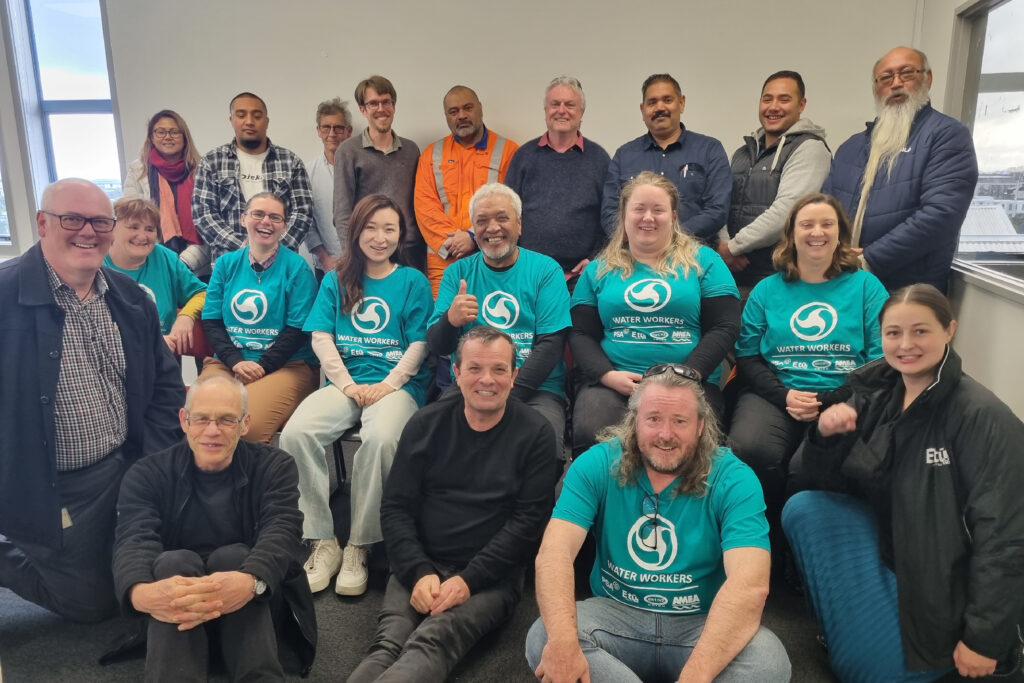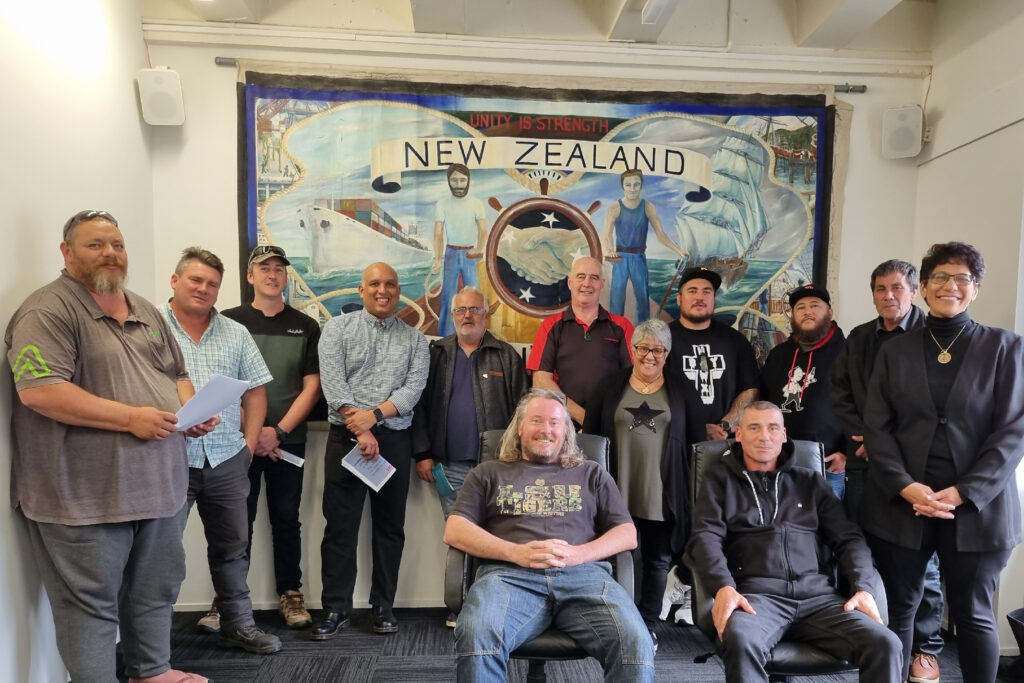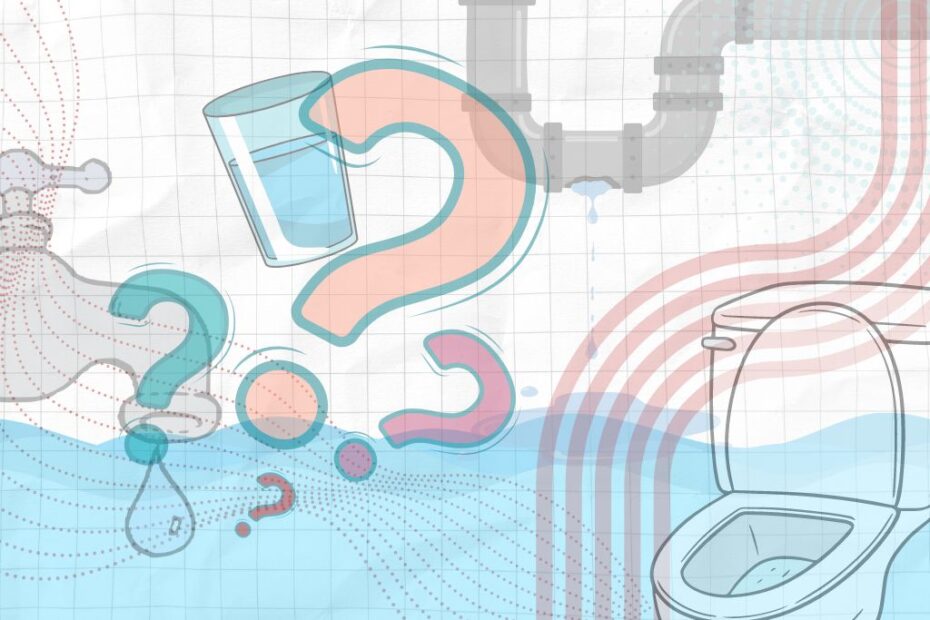Is there anything more important than water? No. Then why is this government hellbent on adding to the generational problems of water management, without providing any solutions?
Over the course of 2023, I met hundreds of amazing workers in the water industry. From technicians to engineers, electricians to administrators, this diverse workforce are committed to the safety of our drinking water and the integrity of our wastewater systems. Despite being often overlooked and underpaid, they are the backbone of Aotearoa’s infrastructure. They are not our highest paid or most visible workforce, but we would be stuffed without them.

Political Rollercoaster: The Fate of Water Reforms
During the election, the National-led government campaigned on ‘anti 3 waters’ reform agenda, leaving a legislative void without proposing an alternative solution. This abrupt halt signals a return to outdated water management practices, making existing challenges worse rather than actually addressing them. The problems can already be seen in local councils, who are struggling with failing infrastructure, and this is a real cost that will impact already-stretched residents.
There is no vision. There will be no resource sharing. Workers will be put through more uncertainty. Problems with storm, drinking and wastewater infrastructure and water quality will remain and worsen. Councils will be on their own.
In 2019 it was reported that 34,000 people in Aotearoa became sick from drinking water, and many more needed to boil their water to make it drinkable. The urgency of reform is underscored by alarming statistics: thousands falling ill due to contaminated drinking water, with fatalities tragically recorded in Havelock North. Water shortages and boil notices are a reality facing many of us right now. Water is still leaking under the streets of Pōneke. Storms are occurring with increasing ferocity. We all still need water to survive.
Strain on the Workforce
I imagine the eye rolls of a workforce who are 4,000 strong, dealing with a high level of unfilled vacancies (around 15%) and working with aging and in some cases, deteriorated infrastructure. A workforce predicted to be increasing to around 9,300 workers in coming years just to meet our country’s demand.
They have been on a change treadmill for the last two years as their work has been part of a political football game. Despite this, their day-to-day work has for the most part remained unchanged, or even intensified thanks to the climate change-related flooding events in Auckland and on the East Coast in 2023. Some of them work in communities where anti 3 Waters slogans were thrown around without thought, and talking about what they do for work at the local pub suddenly became a political conversation.
As we travelled the country talking to workers, we heard no one opposed the reforms. Or tangata whenua representation. Instead, their issues were around having enough training, enough information and the right tools to provide an effective service. They’re also deeply concerned about filling the vacancies and growing an effective workforce. Workers thought there was finally a path ahead, and suddenly yet another change confronts them. There will be a mental calculation of whether staying is worth it. Many of the people who work in water have skills which are transferrable to other infrastructure projects, here and abroad.
The solid industry-level Collective Agreement they negotiated last year for their industry will not see the light of day. Their hopes for an industry approach to their work and improved workforce development and retention and recruitment plans, will be parked.

Implications for Local Government
City councillors are confronted with the daunting task of revising long-term plans amid projected rate increases. Decentralisation threatens to compound resource duplication and disproportionately impacts vulnerable communities with limited financial resources. How will they break it to city residents that their rates are predicted to rise to between 2 to 8 percent? Or for those in rural areas, a predicted thirteen-fold raise?
Has the Government forgotten that decentralising generally adds to the duplication of resources? That it is the opposite of their much-touted efficiency and ‘cost cutting.’
Racial Undertones and Governance Issues
Like many of the changes that stem from ideology, throwing the ‘baby out with the bathwater’ on water reform will impact the people who already are the most vulnerable: those in small towns, those with lower average incomes, and smaller population bases who will need to share the cost of water infrastructure and maintenance. On all those counts, Tangata Whenua will be impacted disproportionately.
Tangled up in the anti 3 waters reform campaign was blatant racism. The discourse surrounding water reform has been tainted by racism, with misconceptions surrounding ‘co-governance’ perpetuating unfounded fears.
Co-governance became the monster under some farmer’s beds.
A little reality check shows that what was proposed was not even co-governance but the assurance of mana whenua representation on regional governance bodies. This needed to be improved on if genuine co-governance was to be realised, as it should be. But facts didn’t get in the way of the pre-election rhetoric.
The government’s disregard for Māori representation highlights deeper systemic issues and a failure to uphold Te Tiriti and Māori rights.
They have shown that it is their intent to undermine Te Tiriti and the Māori-Crown relationship right from out of the starting blocks.
If a fear of Māori representation is its driver for repealing the work done toward repairing water management, then it says a lot about the leadership of our country.
Navigating Uncertainty
As the government steers away from reform, the repercussions loom large. Existing proposals and business cases provide a roadmap for addressing systemic challenges, emphasising the urgency of meaningful action. This issue of water reform is too important to simply repeal, without addressing the problems that drove that plan.
So now we must watch this trainwreck in slow motion. Wellingtonians will get annoyed with the puddles and emerging streams when there hasn’t been rain for days. Aucklanders might be sick of sewage smells and flooded stormwater drains. Wairarapa might get more boil water notices, and Havelock North and Queenstown may worry about illness and death. Northlanders may worry about how the population can ever pay enough rates to improve and maintain their water systems.
Urgent action is needed to safeguard public health, infrastructure integrity, and equitable governance in Aotearoa’s water management landscape. Just because the Government has kicked water reform to the side, doesn’t mean the problems don’t still exist.

Erin Polaczuk
Director of Lewa Consulting
Erin has two decades of service with the union movement, in leadership, education, organising and policy roles, and in elected international roles. Erin believes unions are the most effective vehicle for positive societal change and social justice.
Her work supports unions through organisational capacity building projects, pay equity, bargaining and industrial relations, and she recently coordinated unions who represent members in the water industry.
Erin was the project coordinator for the union parties in the water reforms, working with members of the PSA, E tū and AWUNZ. Her role was to ensure a smooth transition from a workforce perspective.
